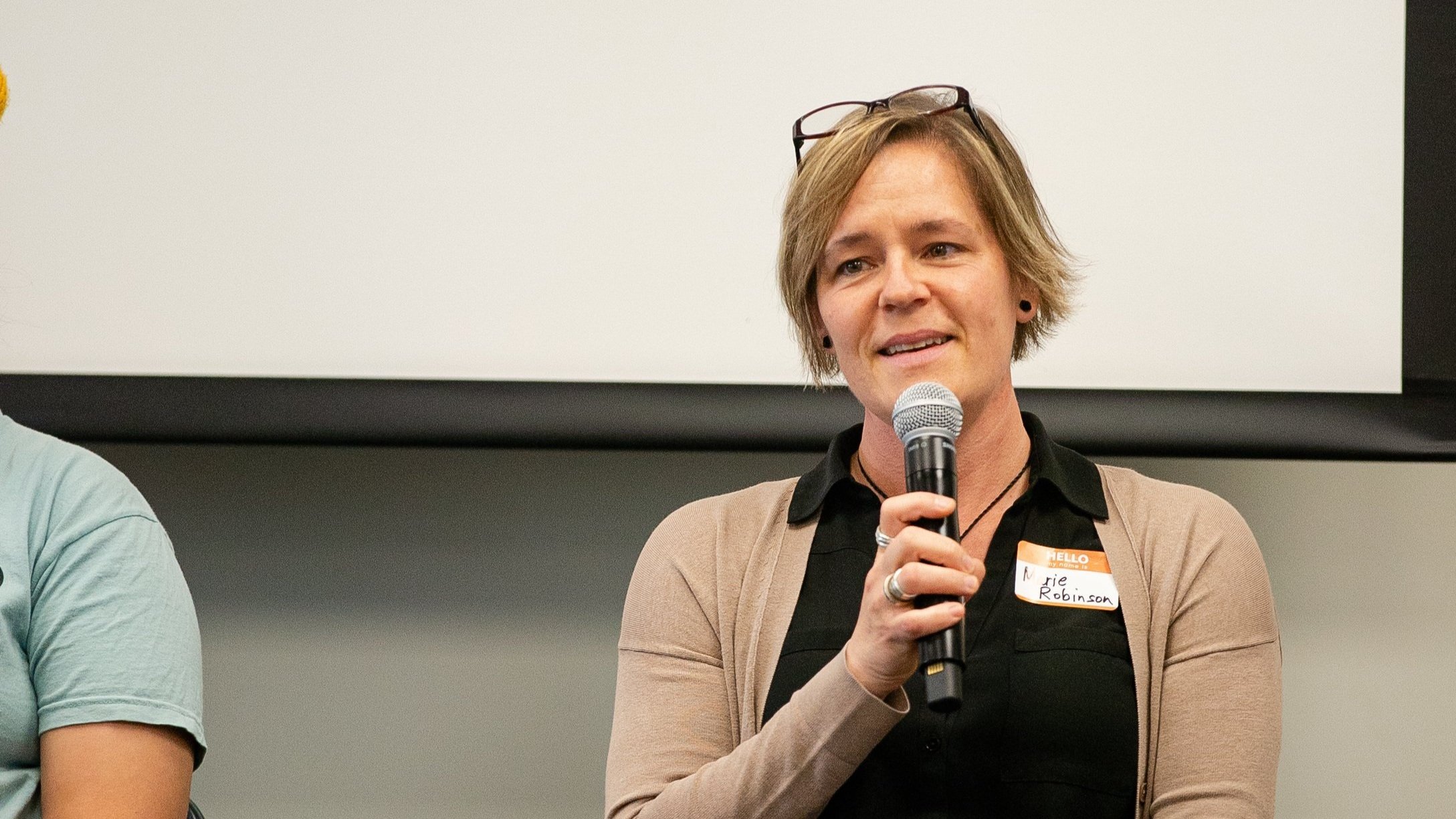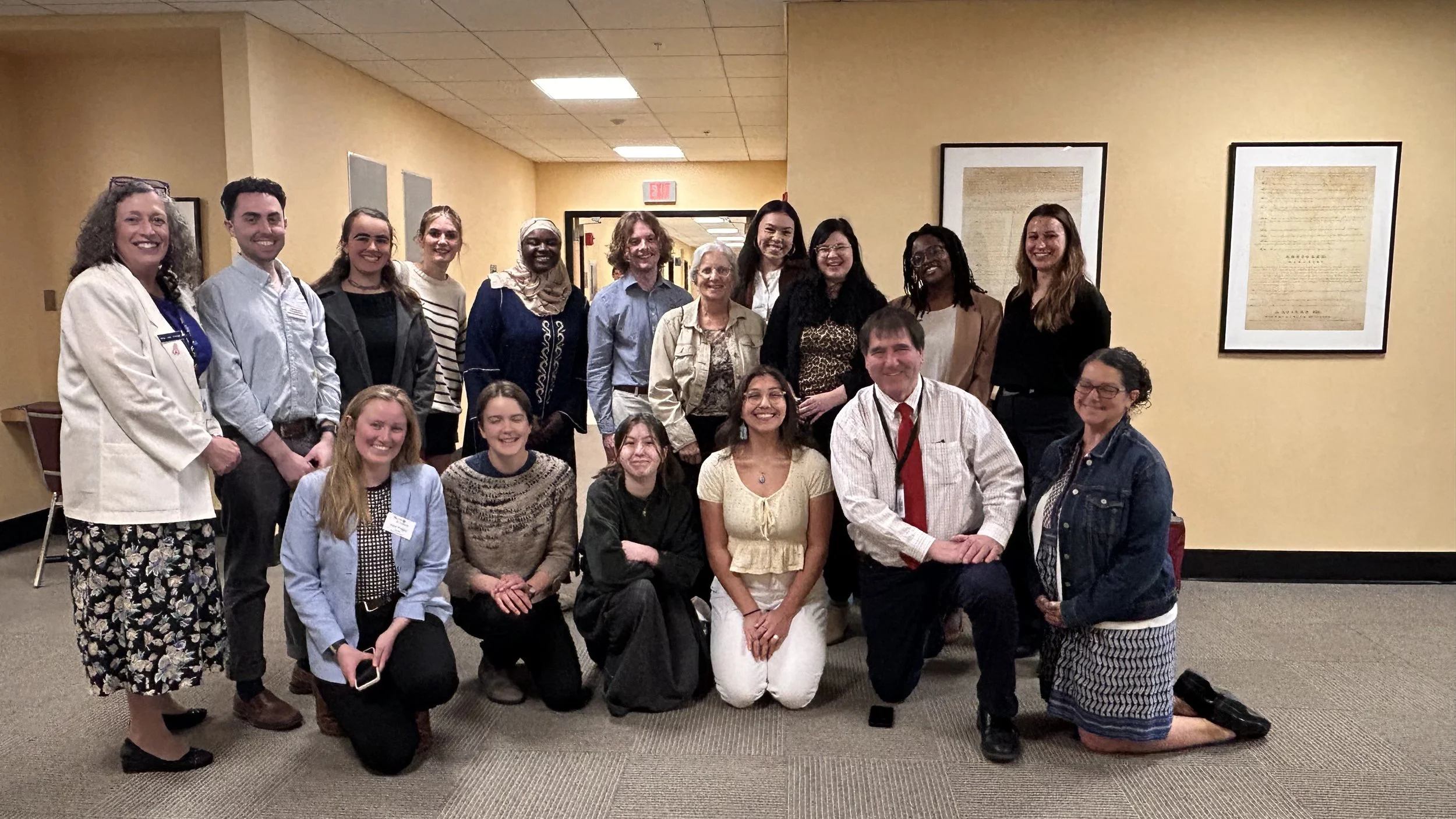Advancing Transformative
Policy and Advocacy
As a state network, MEEA staff, educators, and youth leads support a variety of legislation that center our mission of environmental education, equity, and awareness on both state and federal levels.
We want to express our sincere gratitude for everyone in the MEEA network, both changemakers and educators, who speak up to support our priority policy work. Because youth and educators are the people most directly impacted by the legislation we work on, your voice is the most important when advocating for these bills. Together we are making a difference building a more just, sustainable, healthy and nature-connected future for all!
Self-Determination in Action for Wabanaki Youth
WPYI uplifts the next generation of youth leaders in what is now called Maine to take action for Wabanaki studies education and Wabanaki sovereignty.
Over the course of the 2026 legislative session, Maine Environmental Education Association and the Wabanaki Alliance will support a team of Wabanaki and non-Native youth ages 16-24 to learn about the lawmaking process and how to become an advocate in their state legislature.
Project Coordinators
Sage Phillips, Communicartions & Community Engagement Coordinator at the Wabanaki Alliance
Kaya Lolar, Director of Policy & Wabanaki Studies at MEEA
What bills will WPYI youth be learning about?
LD 1474, An Act to Strengthen the Teaching of Wabanaki Studies in Maine Schools. Click here to read about this bill.
LD 395, a federal beneficial acts bill, involves a nuanced issue that, with proper legislative support, could be a significant step towards regaining financial sovereignty for the Wabanaki, as “all four of the tribes in Maine [are currently] stark economic under performers relative to the other tribes in the Lower 48 states.” (Source below)
LD 785, which aims to engage a task force based on recommendations from previously passed legislation that protects Wabanaki sovereignty. Bills like this ensure that the Wabanaki are not only allowed the capacity but are welcomed to the table where environmental solutions are built – a notion that holistically benefits all, including the land we all live on today.
2026 State-level Priority Legislation
LD 1474 An Act to Strengthen the Teaching of Wabanaki Studies in Maine Schools
This bill received an outpouring of support from the Maine education community, leading to more than 150 letters written in favor of the bill sent to the Committee on Education and Cultural Affairs. Despite this trailblazing large showing of support, LD 1474 only narrowly made it out of committee with a 7-6 vote and also a narrow vote to pass in the House. The Senate sent the bill to the Committee on Appropriations and Financial Affairs, who in a rushed final week of the 132nd Legislature, did not make a decision on funding LD 1474., LD 1474 currently sits on the appropriations table and with your help, we can pass it into law this session!
This bill seeks to accomplish two crucial goals:
Wabanaki Studies Specialist
1) securing a permanent position within the Maine Department of Education for a Wabanaki Studies Specialist to continuously support all Maine schools, regardless of the ongoing political climate, and;
Wabanaki Advisors
2) ensuring that the Department holds funds for the necessary contracted work of any Wabanaki advisors so that they are properly compensated for the important cultural knowledge that they share in order for quality, accessible resources to be built.
Read more about LD 1474 and why it is time to support Wabanaki studies in Maine at the Wabanaki Alliance website.
Wabanaki Studies Social Studies Standards Update
Thank you to everyone who showed up to support the revision of the statewide social studies learning standards to include Wabanaki Studies, African American Studies, and the history of the Holocaust. We shared earlier this spring that the Department of Education had convened the Steering Committee to restart the revision process for the state’s social studies standards–the third step of a thirteen-step process. This committee was composed of representatives from across what is now called Maine, including educators, district administrators, university faculty, and Wabanaki knowledge sharers who have contributed to the vast array of Wabanaki studies materials available today. The Steering Committee, after a day of productive discussion last fall, opted to move forward with the initially proposed standards, honoring the work that was done during the summer of 2023 by practicing teachers and knowledge sharers over four full days of meaningful relationship building.
In May of 2025, the revised social studies standards were voted “Ought Not to Pass” once again by the Education and Cultural Affairs Committee. There was no public hearing held before this decision was made.

Educators are powerful advocates
Check out these advocacy guides for educators to help you with submitting testimony and using your voice to pass impactful policy that benefits environmental education.
We’re starting a Maine Green Schools Network!
LD 1543: An Act to Establish the Maine Green Schools Network passed both the House and the Senate enactment votes in the 132nd Legislature! We are waiting for Governor Mills to sign the bill into law. If passed, this policy will support implementation of Maine’s new climate literacy plan, a recent addendum to the Maine Environmental Literacy Plan. Learn more below.
Youth Lead the way to a
Maine Green Schools Network!
For the first time, MEEA piloted an entirely youth-led policy campaign made possible in partnership with the Nature-Based Education Consortium. Two former MEEA Changemakers fellows, Kaya Lolar and Will Lehan, led a team of seven Maine high school juniors and seniors . Together, the youth leads gave powerful testimony, strengthened their lobbying skills, and supported equity in their local communities through further education and resources regarding advocacy through state policy. . The success of this youth-led model made it clear how impactful it is to center youth in education-based policy work and we’re excited to organize similar youth campaigns in the future!
LD 1543 An Act to Establish the Maine Green Schools Network passed into law!
The Maine Green Schools Network will support project-based, real-world environmental education in Maine schools, and help schools save money and improve aging infrastructure through more energy efficient adaptations in their buildings, energy systems, transportation, food use, and landscaping. The Network will bring together state agencies, educators, students, community-based organizations, and Wabanaki leaders. Learn more on the Nature Based Education Consortium’s website.
Environmental Priorities Coalition
MEEA is a member of the Environmental Priorities Coalition. As a member, MEEA supports all of the EPC bills, and is prioritizing the Land for Maine’s Future program, recognizing Wabanaki self-determination, and making climate polluters pay their fair share for climate devastation. Click the links to see fact sheets about each issue.
All of our advocacy work is done in network and through partnerships at the state and federal levels. Some of those partners include:
The Nature Based Education Consortium, The Enviromental Priorities Coalition, the Maine Green Budget Coalition, Maine Outdoor School for All Network, the North American Association for Environmental Education, Green Schoolyards America, and the Outdoor Alliance for Kids
S-4993 Living Schoolyards Act
The Living Schoolyards Act (S-4993), introduced into the United States Senate by Senator Martin Heinrich (D-NM), is a groundbreaking bill that will direct important federal resources towards transforming school grounds into living schoolyards—richly layered outdoor environments that strengthen local ecological systems while providing place-based, hands-on learning resources for students of all ages.
We work closely with Green Schoolyards of America on this effort
S. 1239, No Child Left Inside Act
MEEA has been working on this bill for two years and advocated for Senator Collins to sign on as a co-sponsor. Our network’s support was critical in realizing this!
The legislation would provide federal grants to states for partnerships between school districts and parks, natural resource management agencies, educator preparation programs, and museums or other organizations with expertise in engaging young people with real-world examples of environmental and scientific concepts. It would also establish a pilot program for outdoor school education programs that offer intensive, hands-on learning experiences, such as residential programs and summer camps.
Green Ribbons Program
The Department of Education’s (ED) Green Ribbon Schools program has awarded the Green Ribbon to over 600 schools, districts and colleges and universities over the past 12 years. The Green Ribbon Act promises to give the current program greater impact by strengthening the capacity of states to educate and equip schools with what they need to work toward the achievement of the three aspirational goals of the award. The Green Ribbon Act would 1) provide grants for implementation of state-wide green school programs consistent with the Department of Education’s (ED) Green Ribbon Schools program, 2) provide $10k honoraria to winners of the Green Ribbon award, 3) create a Clearinghouse Office of School Infrastructure and Sustainability at the Department to function as a technical assistance center for school infrastructure; and 4) expand the ED program to include nonformal learning institutions.
Appropriations
Every year, MEEA also advocates for environmental education funding for NOAA and the Environmental Protection Agency, which has support Maine’s environmental education.










